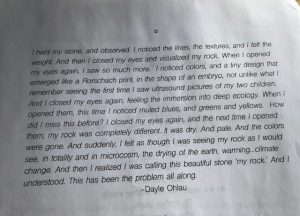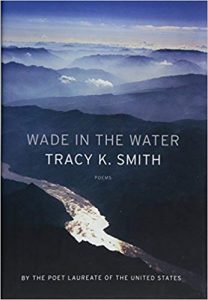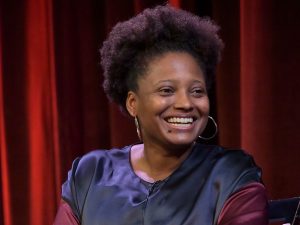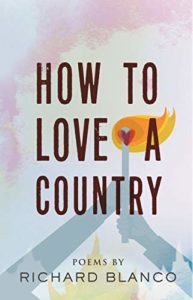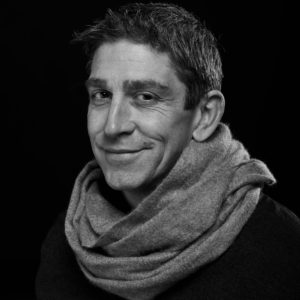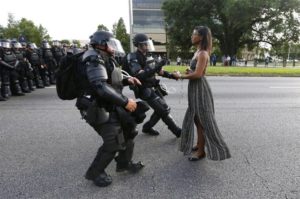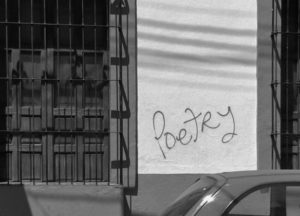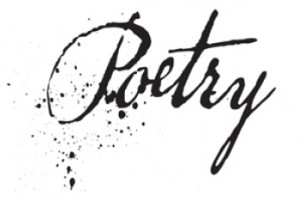Poetry
‘…feelings that defy language.’
February 27, 2020‘If a man has to be pleasing to me, conforming, reassuring, before I can love him, then I cannot truly love him. Not that love cannot console or reassure! But if I demand first to be reassured, I will never dare to begin loving. If a man has to be a Jew or a Christian before I can love him, then I cannot love him. If he has to be black or white before I can love him, then I cannot love him. If he has to belong to my political party or social group before I can love him, if he has to wear any kind of uniform, then my love is no longer love because it is not free: it is dictated by something outside itself. It is dominated by an appetite other than love. I love not the person but his classification, and in that event I love him not as a person but as a thing. In this way I remain at the mercy of forces outside myself, and those who seem to me to be neighbors are indeed strangers; for I am, first of all, a stranger to myself.’
-Thomas Merton, Seasons of Celebration, 1965
Pulitzer Prize-winning poet Tracy K. Smith on the purpose and power of poetry
The two-time American poet laureate joins The Ezra Klein Show for a powerful conversation on love, language, and more.
Ezra Klein:
‘It’s the rare podcast conversation on The Ezra Klein Show where, as it’s happening, I’m making notes to go back and listen again so I can fully absorb what I heard. But this is that kind of episode.
Tracy K. Smith is the chair of the Lewis Center for the Arts at Princeton and a Pulitzer Prize-winning poet, and was the two-time poet laureate of the United States from 2017 to 2019. But I’ll be honest: she was an intimidating interview for me. I often find myself frustrated by poetry, yearning for it to simply tell me what it wants to say, aggravated that I can’t seem to crack its code.
Preparing for this conversation, and even more so, talking to Smith, was a revelation. Poetry, she argues, is about expressing “the feelings that defy language.” The struggle is part of the point: you’re going where language stumbles, where literalism fails. Developing a comfort and ease in those spaces isn’t something we’re taught to do, but it’s something we need to do. And so, on one level, this conversation is simply about poetry: what it is, what it does, how to read it.
But on another level, this conversation is also about the ideas and tensions that Smith uses poetry to capture: what it means to be a descendent of slaves, a human in love, a nation divided. Laced through our conversation is readings of poems from her most recent book Wade in the Water, and discussions of some of the hardest questions in the American, and even human, canon. Hearing Smith read her erasure poem, “Declaration” is, without doubt, one of the most powerful moments I’ve had on the podcast.
There is more to this conversation than I can capture here, but to say it simply: this isn’t one to miss, and that’s particularly true if, like me, poetry intimidates you.’
❀
I want to utter you. I want to portray you
not with lapis or gold, but with colors made of apple bark.
There is no image I could invent
that your presence would not eclipse.
-Rilke
Richard Blanco
December 3, 2019My sense of place — I have — it’s not quite a theory, but the way I’ve been thinking about it lately as an engineer — that everything has a physical landscape, an emotional landscape, and a natural landscape. And I think the way those three things combine form our sense of place and belonging and connection. -Richard blanco
“…what happens to our imagination about these humans when we use the word “immigrant” or “refugee” or, what I’m so aware of now, is what the word “migrant” has done. I think that language makes an abstraction of people and creates an ability for us to separate.” -Krista Tippett
‘As a longtime civil engineer by day and a poet by night, Cuban American writer Richard Blanco has straddled the many ways a sense of place merges with human emotion to form the meaning of home and belonging. In 2013, he became the fifth poet to read at a presidential inauguration (he was also the youngest and the first immigrant). The thoughtfulness, elegance, and humor of Blanco’s poetry and his person captivated the crowd for this live conversation at the Chautauqua Institution.’
Richard Blanco practiced civil engineering for more than 20 years. He is now an associate professor of creative writing at his alma mater, Florida International University. His books of non-fiction and poetry include Looking for the Gulf Motel and, most recently, How to Love a Country.
Basic human truths.
November 3, 2018“When power leads men towards arrogance, poetry reminds him of his limitations. When power narrows the areas of man’s concern, poetry reminds him of the richness and diversity of his existence. When power corrupts, poetry cleanses. For art establishes the basic human truths which must serve as the touchstone of our judgment.”
-JFK, 1961
Unrest in Baton Rouge
“Our bodies run with ink dark blood. / Blood pools in the pavement’s seams. // Is it strange to say love is a language / Few practice, but all, or near all speak? // Even the men in black armor, the ones / Jangling handcuffs and keys, what else // Are they so buffered against, if not love’s blade / Sizing up the heart’s familiar meat? // We watch and grieve. We sleep, stir, eat. / Love: the heart sliced open, gutted, clean. // Love: naked almost in the everlasting street, / Skirt lifted by a different kind of breeze.”
Poet Laureate Tracy K. Smith
On Being
‘Love is a language/Few practice, but all, or near all speak’
Rescue our soul.
June 7, 2017‘But if not for ourselves, at least for our children, we should unite to respond to these attacks on our lives, liberties and the environment. In his poem “Let America be America Again,” Langston Hughes says,’
Out of the rack and ruin of our gangster death,
The rape and rot of graft, and stealth, and lies,
We, the people, must redeem
The land, the mines, the plants, the rivers.
The mountains and the endless plain—
All, all the stretch of these great green states—
And make America again!
‘It is indeed possible that after this period of turmoil we may reach that beautiful stage when democracy and justice will come back to America. As Leonard Cohen says in his song “Democracy,”’
I’m sentimental, if you know what I mean
I love the country but I can’t stand the scene.
And I’m neither left or right
I’m just staying home tonight,
getting lost in that hopeless little screen.
But I’m stubborn as those garbage bags
that Time cannot decay,
I’m junk but I’m still holding up
this little wild bouquet:
Democracy is coming to the USA.
By:Cesar Chelala| MAY 31, 2017 Bill Moyers & Co
https://www.youtube.com/watch?v=wEBlaMOmKV4
July 29, 2016
“I think a good poem — in a mysterious, unmeasurable way — is religious.”
Michael Longley
‘Do what you love.’
June 2, 2015“Perhaps what is truly known can not be described or articulated by creativity or logic, science or art.”
From Maria Papova:
In her altogether fantastic commencement address on courage and the creative life – one of the greatest commencement addresses of all time – artist, designer, and Design Matters host Debbie Millman offers:
“The grand scheme of a life — maybe, just maybe — is not about knowing or not knowing, choosing or not choosing. Perhaps what is truly known can’t be described or articulated by creativity or logic, science or art. Perhaps it can be expressed by the most authentic and meaningful combination of the two: poetry.
As Robert Frost once wrote, “A poem begins as a lump in the throat, a sense of wrong, a homesickness, a lovesickness. It is never a thought to begin with.”
I recommend the following course of action for those, like you, who are just starting out, or who, like me, may be re-configuring midway through. Heed the words of Robert Frost. Start with a big fat lump in your throat. Start with a profound sense of wrong, a deep homesickness, a crazy lovesickness, and run with it. If you imagine less, less will be what you undoubtedly deserve. Do what you love. And don’t stop until you get what you love. Work as hard as you can. Imagine immensities. Don’t compromise and don’t waste time. In order to strive for a remarkable life, you have to decide that you want one. Start now. Not twenty years from now. Not thirty years from now. Not two weeks from now. Now.”
